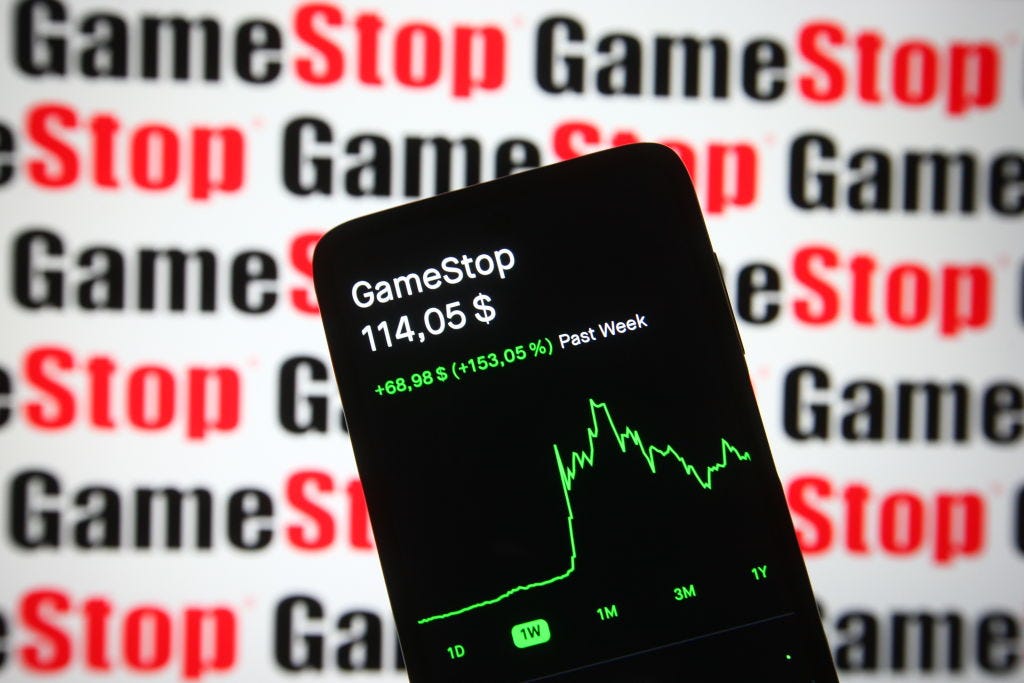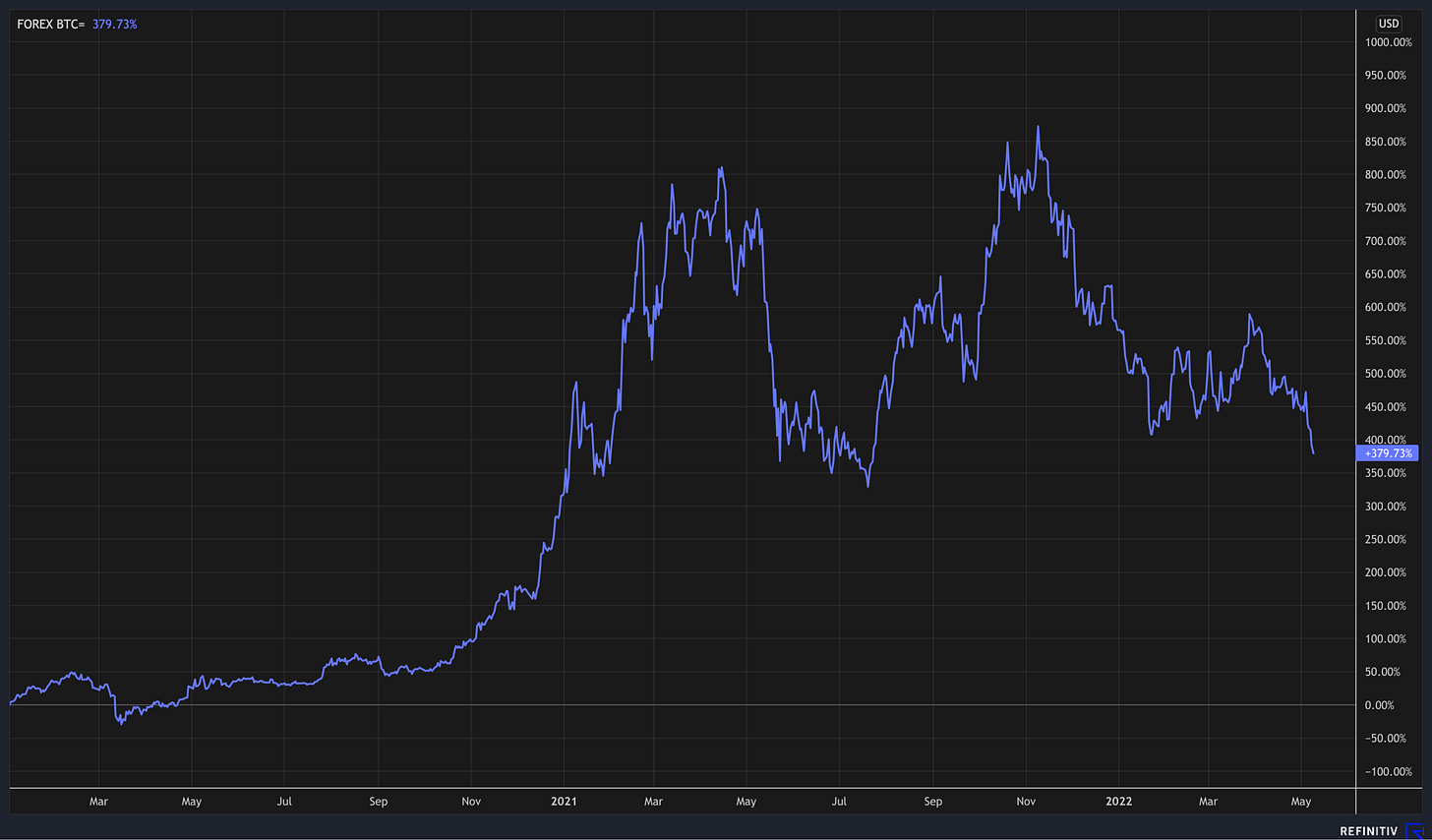Amateur day traders have lost the money they made playing the markets during Covid-19 lockdowns, according to a report by Morgan Stanley. There was a boom in trading from living rooms and bedrooms during the pandemic that brought millions of ordinary people into the market on both sides of the Atlantic. This included a new, younger generation of amateur traders. The average age of new clients for Hargreaves Lansdown, the biggest UK investment platform, has fallen from 45 to 37 since 2012.
Traders used Hargreaves as well as commission-free sites such as Robinhood in the US or new entrants like Etoro in the UK to buy stocks. They then profited nicely from the dramatic recovery in financial markets following their Covid-19 slump. However, amid concerns about rising inflation, central banks increasing interest rates, supply chain disruption and a global economic slowdown, markets have gone into reserve in 2022.
Morgan Stanley has used public and exchange price data to estimate that profits for new entrants in the market since the start of 2020 have disappeared. The report is US-focused but the trend will be similar in the UK. Amateur traders in this country also targeted US stocks (such as Gamestop and AMC, the cinema chain, which exploded during the Wallstreetbets craze at the start of 2021) and the UK market is slowing down too. Bloomberg has more on the Morgan Stanley report here. To give a UK example, this is what Ocado shares have done since January 2020. If you had bought Ocado shares in January 2020 you would have been 130 per cent up by September of that year. Now, however, you are down more than 35 per cent…
This, by the way, is what bitcoin looks like. It is still nearly 400 per cent higher than it was at the start of 2020, but has also fallen dramatically in 2022.
It will be fascinating to see what the new generation of traders do next. When they were buying stocks and bitcoin they were told repeatedly that the good times wouldn’t last and the bubble would burst. Well, the bubble may be bursting now. For instance, look at this Twitter thread from Silicon Valley venture capitalist David Sacks…
There are undoubtedly going to be losers from this slide in markets, but the long-term winners will still be the long-term winners. This is an interesting reminder of what happened during and after the dot-com crash…

Bradford v Blackburn
It looks like Bradford-based Morrisons is going to win the battle to buy McColl’s out of administration, seeing off a rival bid from EG Group, which is led by the Blackburn-based Issa Brothers. We flagged the long-term problem with McColl’s business model on Friday (cigarettes and alcohol, to quote one of my favourite Oasis songs). Despite this, there is huge potential for Morrisons and the Issas, who also control Asda, to expand their broader, modern convenience store offerings by buying McColl’s. The deal reminds me of Tesco’s £530 million acquisition of T&S Stores, owner of One Stop and Day & Nite convenience stores, in 2003. That deal proved to be one of the most significant in the recent history of the retail industry, giving Tesco a foothold in the convenience store market to expand its Express brand ahead of Sainsbury’s and others. Tesco’s rivals subsequently said they wished they had made more of a fuss with the competition regulator about the deal. I wonder if the Competition and Markets Authority will take an interest in the McColl’s deal. With 1,100 shops and 16,000 jobs at risk, it’s tricky territory.
A chart that helps you understand the world


This chart is part of a great thread on Twitter about how Liberty Media has tried to grow Formula 1 since buying control of the sport for $4.4 billion in 2016. In short - it has targeted younger fans through social. You can read more on the Huddle Up business-of-sport newsletter here.
You should also read this
Commodities trader Trafigura has taken a stake in a UK company called Green Lithium which wants to supply electric car makers with lithium from a UK refinery (FT, paywall)
The future of the UK’s largest computer chip factory in Newport really matters to help protect skilled jobs and the car industry, so why is it being sold to a Chinese company? (Sunday Times, paywall)
Investment expert Stephen Clapham looks at why UK investors may be costing themselves money by being bias towards UK companies (Behind the Balance Sheet)
Downing Street adviser turned podcaster and fellow Substack writer Jimmy McLoughlin has got an interview with Bank of England governor Andrew Bailey where he talks about Russia, cryptocurrencies, working from home, Leeds as a fintech hub and more. Bailey has tended to give far more interesting interviews than his predecessor Mark Carney and this is likely to generate news stories when it is released in a few weeks (Jimmy’s Jobs of the Future)
And finally…
A new record could be set tonight for the highest price paid at auction for a piece of 20th-century art. Andy Warhol’s Shot Sage Blue Marilyn is scheduled to be auctioned at Christie’s in New York. The 1964 silk-screen print is predicted to sell for as much as $200 million. To break the record it needs to clear the $179.4 million paid for Pablo Picasso’s Les Femmes d'Alger (Version O) in 2015. The painting is being sold from the collection of the Swiss art dealers Thomas and Doris Ammann (Doris Ammann died last year, Thomas in 1993). The sale kicks off a key auction season that will test the sentiment of the market for fine art post-Covid and amid a global economic slowdown.
Thanks for reading. Off to Lunch will be back on Wednesday. If you want to contribute to the work of Off to Lunch, then please sign up for a paid subscription below. Alternatively, please just spread the word!
Graham







